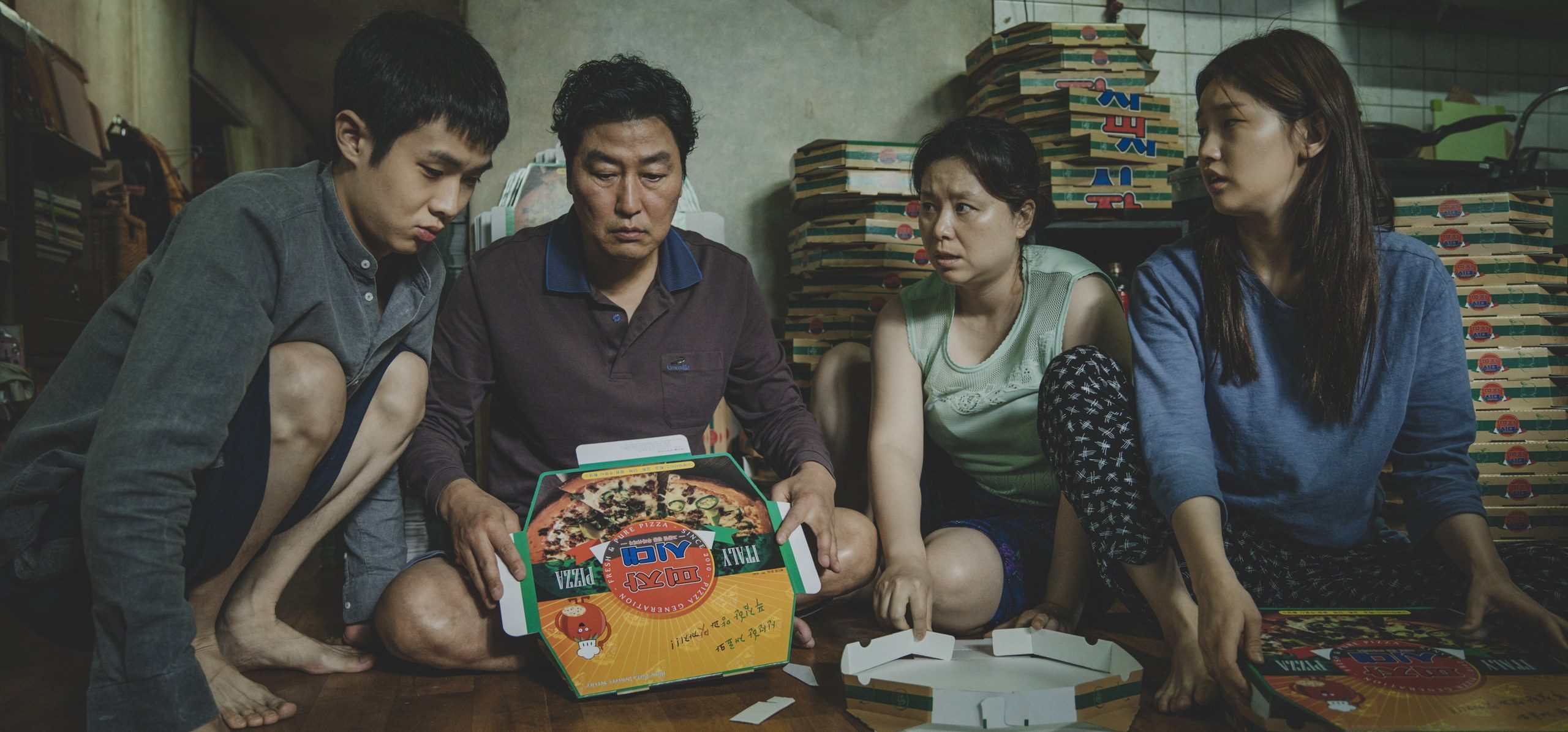There perhaps would be no greater cinematic injustice this year than to try and insert, or even tend to attempt to describe or classify Bong Joon Ho’s seminal piece of filmmaking, and finally, his crowning jewel too, into a single genre. Or two, three, maybe even four. It is exactly this kind of filmmaking that gratifies the ones who love films and live by them, and while I have always been beyond appreciative and awestruck by Joon Ho’s impressive, socially informed, genre-melding filmography, here, he just assumes legendary status from the word go. A genre then simply sounds too trivial to bog down a film that defies, so adeptly, so strongly, any notions of tradition. This is cinema, and it is here to tell a story. Plain and simple.
In a lot of ways, I am simply happy that ‘Parasite’ or ‘Gisaengchung’ as it is originally called is receiving the kind of attention it is, especially after the film’s unanimous win at the Cannes, the Palme d’Or sent waves through the entertainment world claiming it as the next big film to watch out for. The film, outside its home country in South Korea, would simply be regarded as a film festival darling, or intended for serious cinema viewers. While, that is, to an extent true, I am reckoning that its worldwide release, coupled with the noise that it’s bound to make come Oscar season will help it grab just the right amount of eyeballs to snowball it into popular culture.

While I am sure that my raving about the film will continue in a number of write-ups this year, let’s jump to the purpose of this one, something that I intend as a film guide, or a beginner’s piece for anyone wishing to arm themselves with what the film is about before catching it themselves, or wondering whether to catch it this week. It is, quite fairly, impossible to try and wrap up what the film really is about within the scope of this writeup, what with all its glorious dabbling in socialistic themes, satire and even comedy. Thank heavens then that I will be doing a detailed breakup of the film, particularly its ending and themes.
Ever heard of the charlatan moniker, “Greed is good”? Well, what ‘Parasite’ does is take you on a journey to explore whether it really is. If yes, to what extent? And if not, what fundamentally drives people to do things that they normally won’t? I won’t be spoiling anything, since I fully intend for each one of the people even chancing upon this article to completely soak in everything that the film offers, including its many surprises, so you can rest easy on that front.
‘Parasite’ tells of the Kim family living in a downtrodden neighbourhood in a derelict part of the city, occupying a small semi-basement accommodation, all of whom are unemployed and only partly skilled, except for the patriarch of the family, who has earlier worked as a driver for many years. The family now get by through performing menial tasks and borderline pay, like folding pizza boxes.

Fate turns its course as one day, Ki-woo, the son in the family, has a friend offer him his old job at a wealthy household, tutoring the daughter of the Park household in English, despite him not being qualified enough, even suggesting Ki-woo to fake it. Seeing the substantial pay, the family is lured towards swindling the affluent yet somewhat naïve family, and hatch a plan to plant themselves as employees of the family, replacing the existing ones.
Subsequently, Ki-jung, the daughter, takes over as the Parks’ son’s art teacher/therapist to help him recover from a traumatic incident from his childhood, even claiming higher fees for the same; Ki-taek replaces their driver who the family frame for indulging in debauchery in the Park’s car, and Chung-sook replaces their loyal and long-time housekeeper by having her framed for having tuberculosis.
With the entire family now under profitable employ, things only begin to look up while hiding their lie of being related to each other from the Park family, literally fending off as “parasites” off of the affluent Park family’s fortune, only to soon be interrupted by the family’s old housekeeper turning up one day at the house’s doorstep to extract something she claims to have forgotten in the basement, while the Park family is away for camping, and the Kim family indulges in revelries behind their back in their house. Naturally, all hell breaks loose, and how and if the Kim family find their way out of the inadvertent mess of that night in a pursuit to continue with their “dream jobs” forms the rest of the film’s story.
However, believe me when I say that these are quite simply the least twisty portions of the film, only intended to get you comfortable in your seat. What transpires with the Kims and the Parks after this will make your jaw drop to the floor. You can take my word for it. It is Joon Ho’s world, completely even whimsical at times, and he makes sure you play by his rules. You wouldn’t want to miss this bittersweet ride.
Read More: What is Irishman About?


You must be logged in to post a comment.